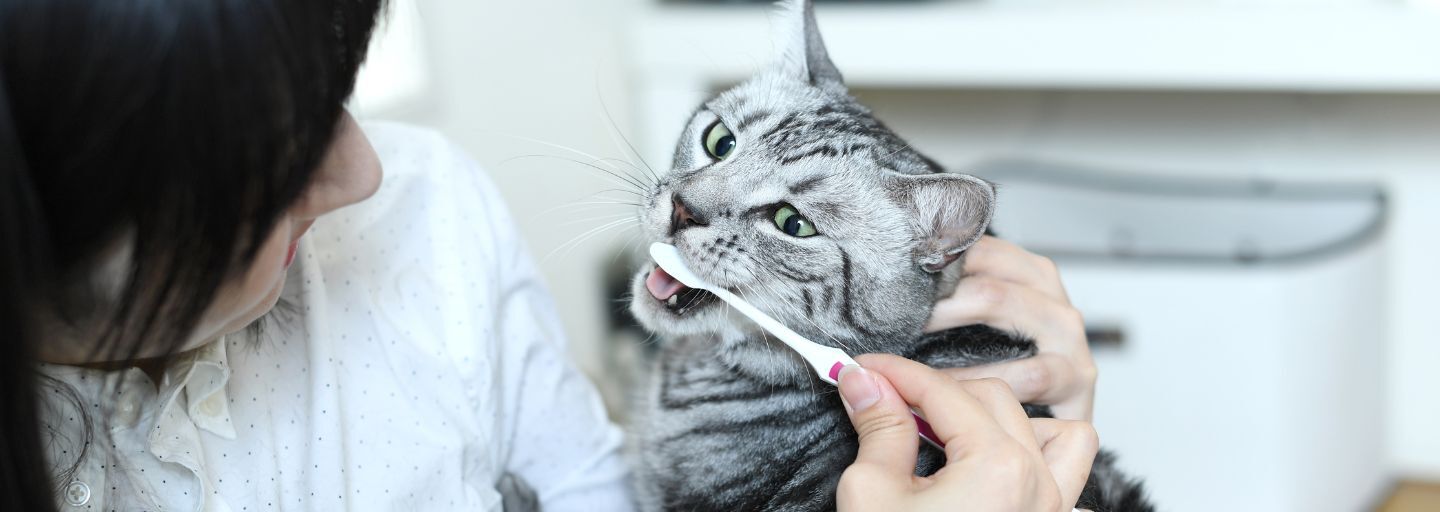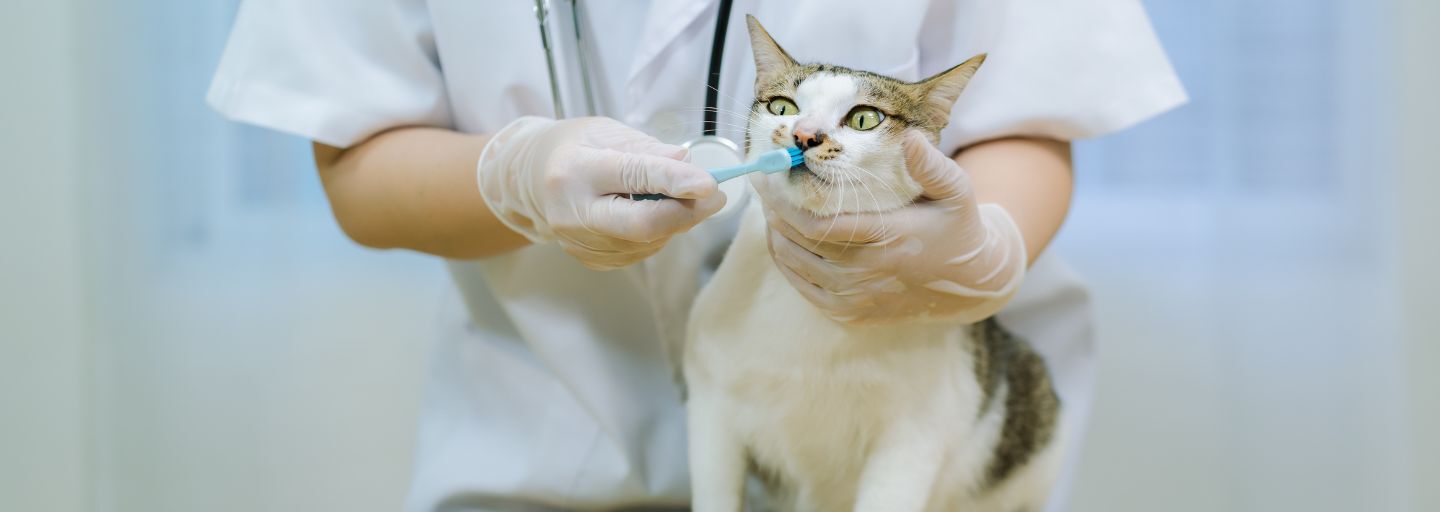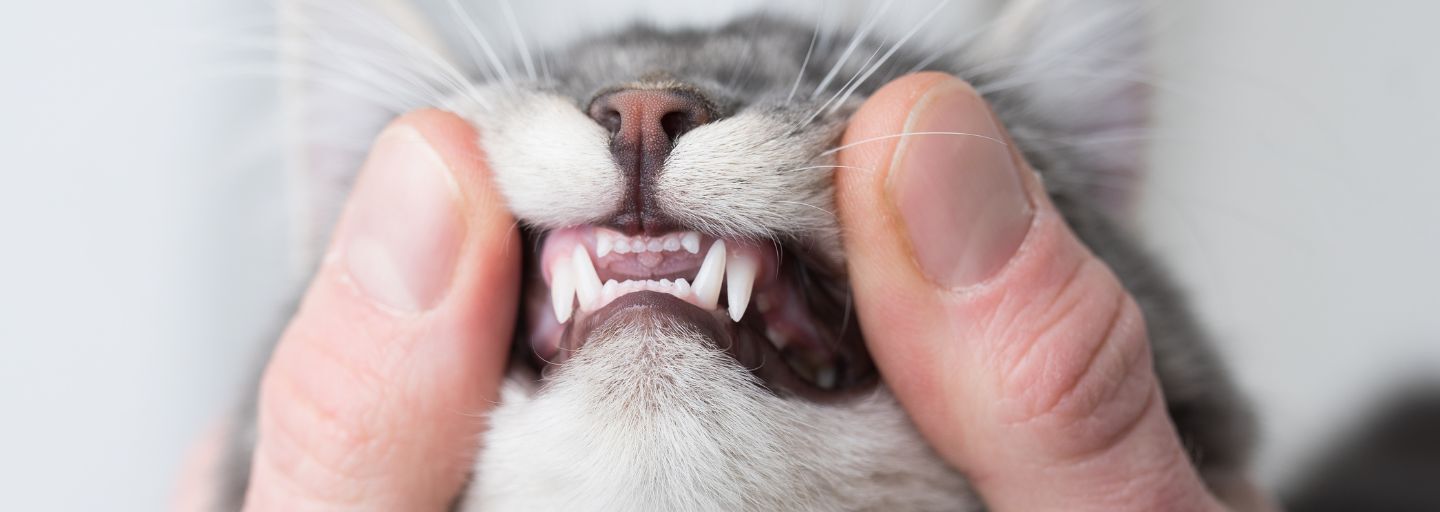If you've noticed that your cat has bad breath, it's important to take action to address the underlying cause. Find out the possible causes for bad breath by reading our “Why Your Cat Has Bad Breath” article.
Here are some steps you can take if your cat has bad breath:
- Schedule a Veterinary Check-up: The first step in addressing your cat's bad breath is to schedule a veterinary check-up. A veterinarian can examine your cat's mouth, teeth, and gums to determine the cause of the bad breath. They may also recommend additional tests or procedures, such as dental cleanings or blood work, to further evaluate your cat's oral and overall health.
- Establish a Dental Care Routine: Regular dental care is crucial for maintaining your cat's oral health and preventing bad breath. Start by introducing a dental care routine, which may include brushing your cat's teeth with a cat-specific toothbrush and toothpaste. It's important to use products specifically formulated for cats, as human toothpaste can be harmful to them. If your cat is resistant to brushing, consult with your veterinarian for alternative dental care options, such as dental wipes or water additives.
- Provide Dental Treats and Toys: In addition to brushing, providing dental treats and toys can help promote good oral hygiene and freshen your cat's breath. Look for dental treats that are designed to reduce plaque and tartar buildup. Chew toys or dental toys that encourage chewing can also help remove debris and promote healthy teeth and gums. Remember to choose toys that are appropriate for your cat's size and supervise their use to prevent any accidents.
- Consider Professional Dental Cleanings: If your cat's bad breath is due to severe dental issues, your veterinarian may recommend professional dental cleanings. These cleanings are performed under anaesthesia and involve a thorough examination, scaling to remove tartar, and polishing to smooth the teeth. Professional cleanings can help address existing dental problems and improve your cat's oral health.
- Evaluate Your Cat's Diet: The food your cat eats can impact their breath. Evaluate your cat's diet and consider switching to a high-quality cat food that promotes dental health. Look for options that are specifically formulated to reduce plaque and tartar buildup. Additionally, ensure that your cat has access to fresh water at all times to promote hydration and help flush out bacteria from their mouth.
- Monitor for Other Symptoms: While bad breath can be a standalone issue, it can also be a symptom of underlying health conditions. Monitor your cat for any other signs of illness, such as changes in appetite, weight loss, vomiting, or lethargy. If you notice any additional symptoms, it's important to inform your veterinarian during the check-up, as they can help determine if there are any underlying health concerns contributing to the bad breath.
- Follow Your Veterinarian's Recommendations: After the veterinary check-up, follow your veterinarian's recommendations for treatment and ongoing care. This may include a combination of dental care at home, professional cleanings, dietary changes, or treatment for any underlying health conditions. It's important to follow their guidance to address the underlying cause of your cat's bad breath and maintain their oral and overall health.
If your cat has bad breath, it's important to schedule a veterinary check-up, establish a dental care routine, provide dental treats and toys, consider professional dental cleanings, if necessary, evaluate your cat's diet, monitor for other symptoms, and follow your veterinarian's recommendations. By addressing the underlying cause and maintaining good oral hygiene, you can help your cat achieve fresh breath and optimal oral health.







